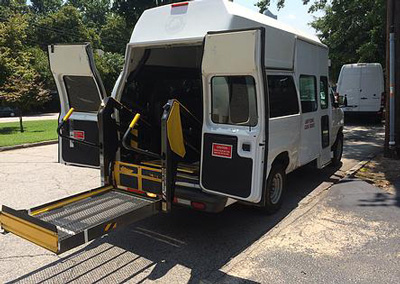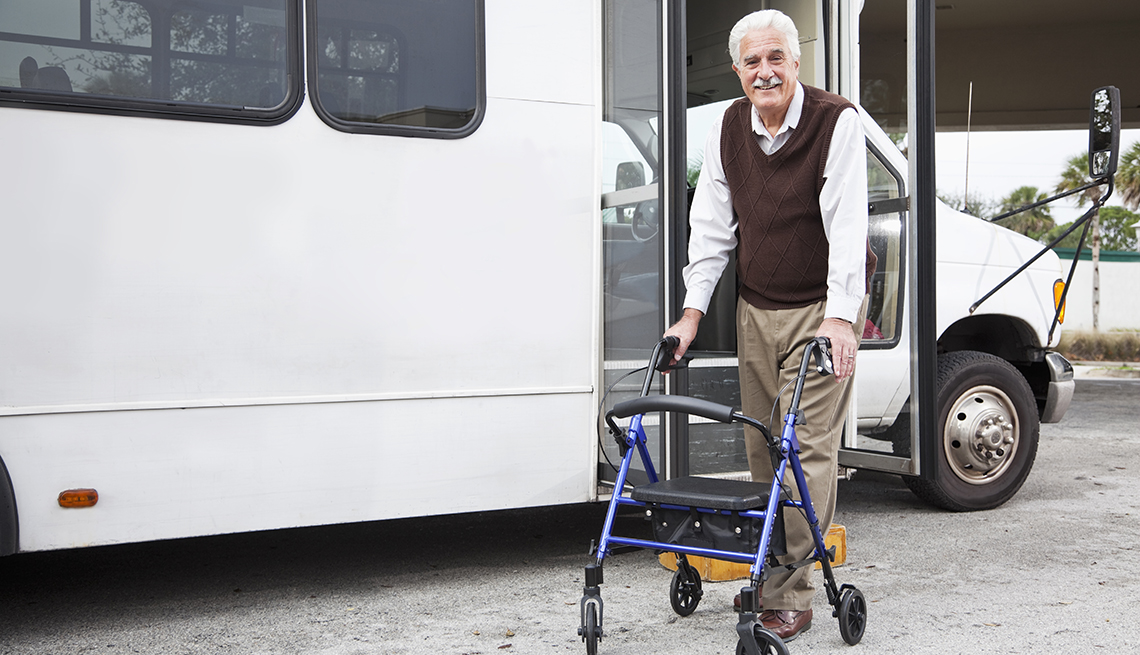Boost Accessibility with Professional Medical Transportation Services Near Me
Boost Accessibility with Professional Medical Transportation Services Near Me
Blog Article
Easily Accessible and Affordable Medical Transport Options for Seamless Wellness Support
In the realm of healthcare, the availability and cost of clinical transport are paramount in ensuring individuals can access the treatment they require when they require it. From non-emergency medical transportation services to cutting-edge solutions like telehealth, the landscape of clinical transportation is progressing to meet the diverse demands of clients.
Non-Emergency Medical Transport Provider

These services are staffed by experienced professionals who prioritize patient convenience and security throughout transit. Vehicle drivers are furnished to handle individuals with differing clinical needs and make sure that all trips are smooth and worry-free - Medical Transportation Services Near Me. Additionally, non-emergency medical transportation solutions frequently make use of customized vehicles that are wheelchair-accessible, making them appropriate for a large range of patients with various mobility needs
Volunteer Vehicle Driver Programs
Volunteer driver programs are instrumental in providing transport aid for people in requirement of non-urgent treatment. These programs rely upon the kindness of volunteers who donate their time and vehicles to aid transportation clients to and from medical appointments. By making use of volunteer vehicle drivers, organizations can provide an affordable solution for people who may not have accessibility to trustworthy transportation.
Among the vital benefits of volunteer driver programs is the individualized treatment and attention that clients receive. Unlike typical transport services, volunteer motorists commonly develop a relationship with the people they assist, creating a thoughtful and helpful environment throughout what can be a stressful time. Furthermore, volunteer chauffeur programs can aid bridge the gap for people residing in rural or underserved areas where public transportation alternatives may be restricted.
Public Transport Options

Among the key benefits of public transportation is its prevalent availability in rural and city areas alike. This substantial network allows individuals from varied backgrounds to take a trip to medical visits with loved one ease. Furthermore, public transportation systems are commonly geared up to suit people with impairments, providing obtainable travel alternatives for those with movement challenges.

Ride-Sharing and Transport Network Companies
The development of contemporary transportation options for medical purposes prolongs beyond traditional public systems like buses and trains to encompass the ingenious realm of ride-sharing and transportation network business. Ride-sharing solutions such as Uber and Lyft have actually reinvented the way people travel to medical appointments, using comfort and versatility to clients who may not have accessibility to their lorries or conventional public transportation. These platforms allow customers to ask for an experience with the touch of a button on their smartphones, providing door-to-door solution that can be especially helpful for people with movement challenges or those calling for help.
Transport network companies (TNCs) have actually likewise played a significant role in linking the space in medical transport services. Firms like Veyo and RoundTrip focus on non-emergency medical transport, dealing her comment is here with patients that need a greater level of aid throughout their journeys to clinical facilities. By partnering with medical care carriers and insurance firms, TNCs make sure that patients can access reliable and prompt transport options, ultimately adding to improved health and wellness outcomes and individual complete satisfaction.
Telehealth and Digital Assessments
Enhancing medical care ease of access and ease, telehealth and virtual examinations have become crucial components in modern-day medical methods, revolutionizing the method people interact with medical care service providers. Telehealth leverages modern technology to facilitate remote communication in between clients and medical care specialists, providing a large array of services such as online examinations, remote surveillance, and electronic prescriptions. Online examinations allow individuals to look for clinical advice, diagnosis, and treatment from the convenience of their homes, eliminating the need for physical sees to health care centers. This technique not address just conserves time and decreases transportation prices for individuals however additionally improves the general effectiveness of health care shipment.
Moreover, telehealth plays a crucial duty in expanding medical services to underserved communities, backwoods, and individuals with limited flexibility. By damaging down geographical barriers and raising health care outreach, telehealth promotes very early intervention, continuity of treatment, and client involvement. As innovation remains to breakthrough, telehealth is positioned to play an increasingly substantial function in shaping the future of health care delivery, cultivating improved wellness results and person contentment.
Final Thought

From non-emergency clinical transportation solutions to innovative services like telehealth, the landscape of clinical transport is developing to fulfill the diverse needs of individuals.Non-Emergency Medical Transportation Provider help with the secure and timely transport of individuals calling for non-urgent medical treatment to and from medical care facilities.The advancement of modern transport options for check out this site clinical objectives prolongs past traditional public systems like trains and buses to encompass the ingenious world of ride-sharing and transportation network business.Transport network companies (TNCs) have additionally played a considerable duty in bridging the gap in clinical transport services. Non-Emergency Medical Transportation Solutions, Volunteer Driver Programs, Public Transportation Options, Ride-Sharing and Transport Network Firms, and Telehealth and Virtual Consultations all play an important duty in addressing transportation obstacles to medical care access.
Report this page